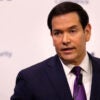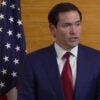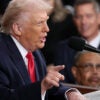No one would argue threats to America have decreased by 15 percent since 2011. So why has the budget for protecting ourselves decreased by that much?
Congress needs to consider that question as it works in the next few months to iron out America’s national security budget for the next fiscal year. Right now, our investment in national security does not address the obvious threats. That needs to change.
This all started in August 2011, when Congress passed and President Obama signed into law the Budget Control Act and Americans first started hearing the word ‘sequester.’
Republicans had taken control of the House of Representatives in January, and the Obama administration had been using “extraordinary measures” to extend the federal debt ceiling. The economy was struggling, with unemployment of more than 9 percent, and the government was on pace to incur a federal deficit of more than $1 trillion for the third consecutive year.
At the same time, threats around the world appeared to be calming. Osama bin Laden had been killed by Navy SEALS in May, the Arab Spring had led to regime change in Tunisia and Egypt, the U.S. was withdrawing from Iraq and the administration was “leading from behind” in what seemed at the time to be a successful intervention in Libya. Most Americans, and most of our allies around the world, were far more concerned about domestic economic issues and national debt than foreign policy and national security.
But even in 2011, it was clear to some the potential cuts to national security spending the Budget Control Act would trigger were unacceptable. The day after it became law, Secretary of Defense Leon Panetta said,
The debt ceiling agreement contains a sequester mechanism that would take effect if Congress fails to enact further deficit reduction. If that happens, it could trigger a round of dangerous across-the-board defense cuts that would do real damage to our security, our troops and their families, and our ability to protect the nation.
This sequester mechanism was partially implemented, and our national security spending has been cut 9 percent in nominal terms. If you factor in inflation, the 2015 national security budget is 15 percent (or $88.5 billion) below the 2011 national security budget. Overseas operations are normally excluded, but if you do include them the cut is even more dramatic.
At the same time, the situation in the world has turned dramatically for the worse. Here are just a few of the important world events since 2011:
2012:
- Mohamed Morsi, an Islamist supported by the Muslim Brotherhood, was sworn in as president of Egypt.
- A terrorist group attacked the U.S. consulate in Benghazi, Libya, and killed four Americans, including Ambassador Chris Stevens.
- Israel responded to rockets fired by Hamas members from Gaza by launching Operation Pillar of Defense, which included targeted airstrikes against Hamas officials.
2013:
- The Tsarnaev brothers set off a bomb at the Boston Marathon that killed three people.
- North Korea tested a nuclear weapon.
- The Assad regime used chemical weapons on its own people in Syria, killing hundreds of civilians.
- China established an Air Defense Identification Zone over the East China Sea.
- Up to 70 million people were affected by the Target cybersecurity breach.
2014:
- ISIS’s dramatic rise continued as its forces captured Fallujah and Mosul, attacked Mt. Sinjar and released grotesque videos of beheadings.
- West Africa struggled with an Ebola outbreak.
- Russia invaded Crimea.
- Terrorist group Boko Haram kidnapped roughly 300 school girls in Nigeria.
- A Malaysian Airlines flight was shot down by anti-aircraft fire in Ukraine.
- War broke out between Hamas and Israel.
- President Obama launched airstrikes against ISIS and sent 1,500 troops into Iraq to train and advise the Iraqi military.
2015:
- Terrorists attacked the office of French satirical publication Charlie Hebdo in Paris, killing 12 staff members.
- The Yemeni government dissolved as the country descended into civil war.
- ISIS beheaded more than 20 Egyptian Coptic Christians in Libya.
- China built artificial islands in the South China Sea where it has provoked numerous disputes with its neighbors over sovereignty.
- The federal government’s personnel office was hacked by Chinese hackers.
The security threats facing the United States and our allies continue to grow. Vladimir Putin’s Russia continues to intervene militarily in Ukraine and cause instability in Eastern Europe. China continues to make provocative territorial claims in Asia. Islamic terrorists continue to plot against the United States and other Western countries. Iran continues to support terrorist groups and act aggressively in places such as Yemen even as it negotiates a potential nuclear agreement with the U.S. And the threat of cyber attacks only continues to grow.
There is a clear and painful disconnect between what is happening around the world and what is happening in Washington. The world is growing more dangerous, but the government continues to erode America’s national security.
The world has not gotten safer since 2011, so why is the U.S. cutting our national security budget by 15 percent? These budget cuts are one part of why The Heritage Foundation’s 2015 Index of U.S. Military Strength assessed that our military power is marginal. Instead of cutting, we should be investing responsibly in protecting our nation and our interests without raising taxes or increasing the deficit.
For fiscal year 2016, The Heritage Foundation has recommended a national security budget of $584 billion, which is 4 percent higher than President Obama’s proposal but still 6 percent below the inflation-adjusted 2011 national security budget. The Heritage Foundation level would not fix our national security budget overnight, but it would put our men and women in uniform back on the right course toward a strong national defense.
The debate over national security funding in Washington cannot continue to occur in a vacuum. The world has grown markedly more dangerous since 2011, and the United States should be increasing our national security budget, not slashing it.
































